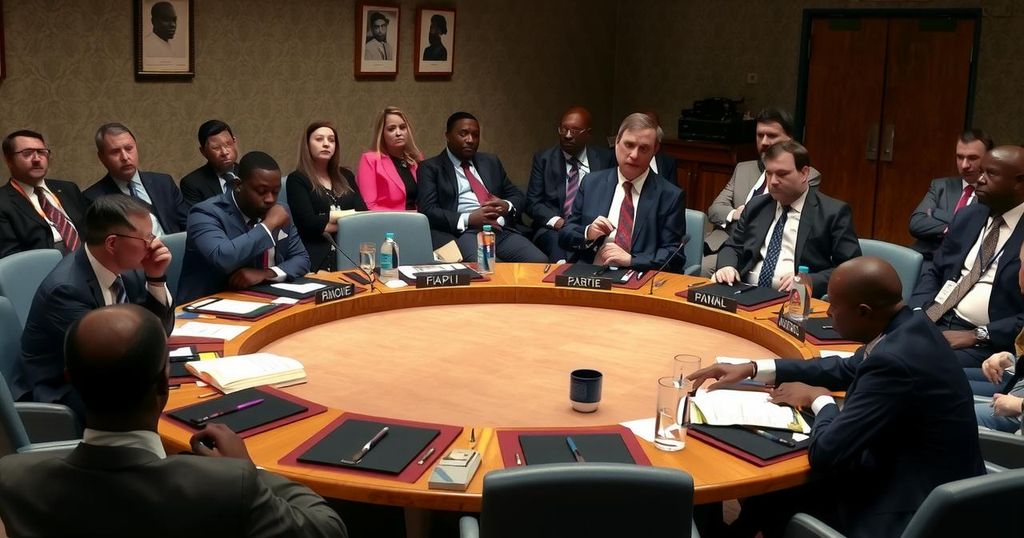The UN Security Council convened to address the escalating violence in eastern DRC, highlighting the roles of various armed groups and the importance of regional mediation led by Angola. Ms. Bintou Keita emphasized ongoing governance reforms and the need for integrated peace processes. Despite some progress, significant challenges remain, including control by armed factions and a humanitarian crisis affecting millions.
On Monday, the United Nations Security Council convened to discuss the urgent need to address ongoing violence in eastern Democratic Republic of the Congo (DRC). Bintou Keita, the UN Special Representative for the DRC and head of the UN Stabilization Mission in the DRC (MONUSCO), provided an update on the escalating insecurity attributed to armed groups such as ADF, M23, CODECO, and Zaïre. In light of these developments, she commended regional mediation initiatives led by Angola and emphasized the significance of integrating various peace processes to achieve long-term stability.
Ms. Keita outlined the administration’s efforts to promote governance reforms aimed at enhancing public services and security, while simultaneously addressing potential constitutional revisions to mitigate political tensions. Furthermore, she acknowledged the advancements made under the Luanda process and the ceasefire agreements with Rwanda, underlining the establishment of the Reinforced Ad-hoc Verification Mechanism (R-AVM) to monitor compliance.
Despite these efforts, the situation in eastern DRC remains precarious. Control by the M23 military group has expanded, while the ADF has been identified as particularly lethal, leading to significant civilian casualties. Ms. Keita also noted the connection between violence and the control of natural resources, urging regional cooperation to combat illicit exploitation.
The humanitarian crisis is amplified by climate change, with approximately 6.4 million individuals displaced due to armed conflicts. However, funding for humanitarian assistance is reportedly improving, although significant challenges remain. With emphasis on gender-based violence, Ms. Keita highlighted the alarming number of incidents reported this year, while acknowledging the government’s reparation efforts for victims.
Ms. Keita concluded by reinforcing the voices of women and individuals with disabilities in the DRC, advocating for their participation in peacebuilding efforts to restore dignity and stability in the region.
The eastern Democratic Republic of the Congo has faced prolonged violence primarily due to armed conflicts involving numerous groups, adversely affecting the civilian population and leading to significant humanitarian crises. Recent efforts by international and regional actors, particularly through UN initiatives, aim to stabilize the region by facilitating peace processes and addressing governance issues. The involvement of organizations like MONUSCO and the commitment of neighboring countries exemplify the collaborative approach required to tackle these profound challenges.
The Security Council’s discussions reflect a critical juncture in addressing instability in eastern DRC. Ongoing violence perpetrated by armed groups, combined with the humanitarian fallout, necessitates a multifaceted response that prioritizes regional cooperation and local engagement. The voices of marginalized groups, particularly women, must be amplified to ensure a comprehensive peace process, enabling a path towards lasting stability and recovery in the region.
Original Source: news.un.org






